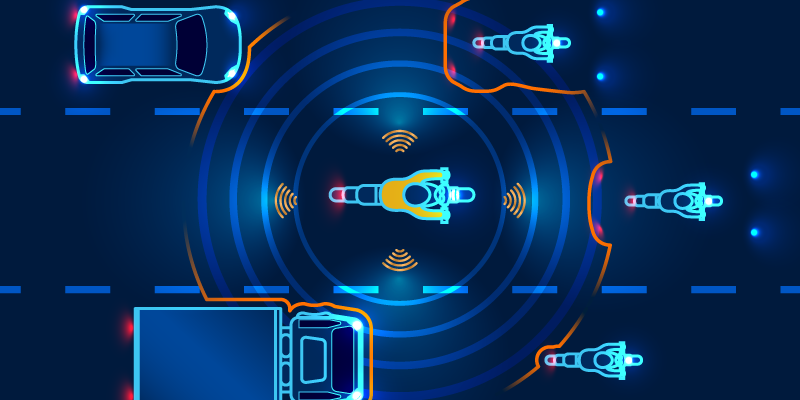The coronavirus pandemic is an important inflection point for the mobility industry. With social distancing being the best line of defence against the virus, governments across the world have mandated public transportation and ride-sharing companies to limit the number of passengers per vehicle.
For private companies, this could spell doom as their fare per seat would fall, bleeding the company dry.
Ola and Uber are already showing signs of struggling – the two have laid-off employees and announced salary cuts to maintain cash flow. Ola said the lockdown had wiped off 95 percent of its revenue over the last two months.
All of this begs the question: can companies like Ola, Uber, and other ride-sharing companies survive the ‘new normal’ in mobility when it inevitably happens?
Bengaluru-based bike-sharing companies – Bounce and Vogo – say they can because they believe the future of mobility in a post-COVID-19 world is self-driven bike-sharing.
For a populous country like India, bike-sharing has more to do with functionality than anything else.
“The public transport in India is not like it is across the globe. For instance, there are 6,000 buses for over three million people in Bengaluru, alone. Public transport was thus overcrowded, and the number of people dependent on it was high. The biggest question is how you get these people to move,” Bounce’s Vivekananda H, Co-founder and CEO, tells YourStory.

Image credit: Aditya Ranade
A move towards self-drive two-wheeler model
As per latest orders by the Indian government, public transport utilisation will be capped at less than 50 percent, the two companies wrote in a joint white-paper, entitled ‘The Future of Mobility’, adding the reduction would ultimately lead to an increase in traffic congestion as more people use their private vehicles.
Vivekananda further says that auto and cab drivers are potential super-spreaders, which could be dangerous especially given the spike in asymptomatic cases.
“Safety and affordability will be the cornerstones of people’s choice when it comes to their daily commute, in that order. We will see people thinking twice before getting into shared autos, buses or metros unless they are convinced that social distancing will be enforced. People living with parents will end up being more careful than the others. The market will have to adjust itself to cater to this need,” said Anand Ayyadurai, Co-founder and CEO of Vogo.
The ideal scenario, therefore, would be ride-sharing with no drivers, where users themselves could be responsible for taking adequate precautions.
The report suggested a self-driven, shared-scooter model – a relatively niche but effective solution that has seen many takers already. “We see two-wheelers to be the ideal solution that addresses both the safety and affordability aspect,” Anand said.
As per their estimates, the two companies believe that one bike can help 10-12 users reach their destinations, every day, compared to the one or two users private vehicles will help transport.
The bike-sharing and rental model could either be on a longer-term basis – as is the case with electric bike startup Yulu, whose Yulu Prive programme allows users to keep bikes with them for up to three months, or a shorter one, for a single ride only.
The model is not just sustainable, but cheap, safe, and can drastically prevent further spread of the virus.
"India needs to prioritise sustainable mobility solutions that can help combat the challenges of social distancing and hygiene while ensuring economic activity resumes safely. Shared mobility services like self-drive shared scooters will be a highly efficient option as they provide an affordable, individual, and safe mode of transport for commuters,” said Amitabh Kant, CEO of Niti Aayog.
Bounce has already seen a 10 percent growth in the number of rides, compared to the pre-COVID days, with the average ride costing up to Rs 85 now, from Rs 55 earlier, while Vogo has seen requests for longer-duration rentals.
“Since the gradual opening up of the city we have seen an increased demand by commuters looking at renting our two-wheelers over longer durations. We have already updated our systems to enable users to increase the length of their rides and renew their subscriptions from the comfort of their homes,” Anand says, adding the company has started delivering scooters to people’s homes so riders have limited touchpoints.
Both Vogo and Bounce display details – such as when the bike was last sanitised – to ensure transparency and caution safety on the part of the users. Bounce has also been encouraging riders to carry their helmets.
To make the drive smoother, Vogo states it is building IoT systems to help daily commuters optimise their rides. The startups are pressing ahead with their EV programmes which they had launched pre-COVID-19. Bounce recently inked a deal with Ather Energy to launch their e-bikes across Bengaluru and Hyderabad.
For people who want to own their own bikes, someday, the two have tied up with banks and NBCFs to help people get easy financing and purchase a used or a new two-wheeler
“While in China we see the number of car sales going up, in India we think the two-wheeler sales will further increase. However, not everyone will be able to buy a two-wheeler, and in such cases personal vehicles of access are important,” says Vivekananda.
Dockless sharing
Vivekananda says dockless bike-sharing has seen a huge growth in China because it helps to limit the risk of virus transmission.
A study conducted by China highlighted that there was a grave risk of community transmission in public transportation systems, even with social distancing. The study was published by the HU Shixiong of Hunan Provincial Centre for Disease Control and Prevention. Case in point: More than 20 bus drivers in London have already died after contracting COVID-19.
There has already been a 70 percent to 90 percent drop in public transport across major cities in the world, while ride-hailing and micro-mobility has dropped 70 percent, according to a McKinsey report.
The advantage dockless bikes provide is that it decreases crowding of bikes in one spot, thereby reducing contact that people may have with each other while picking their rental up. It also prevents many people from congregating in a particular location while picking up or dropping off their scooters, and becoming a hotbed for contamination.
China has reported a 150 percent increase in shared bike or cycle rides, and companies there have been able to do that because of the dockless and self-drive system.
”In a world where vehicles are utilised less than 10 percent of the time, we have always believed that self-driven, shared vehicles are the future of transport. Bounce's unique dockless model is now even more meaningful in the COVID era as a truly safe, inclusive mode of transport,” said Anand Daniel, Partner at Accel, an investor in Bounce.
The report however points out that for self-drive sharing services to grow, the government and local authorities need to provide a robust infrastructure that allows these businesses to operate without any hindrance.
Regulatory relief required
One of the ways the government can help boost the mobility sector is by decreasing taxes.
Self-drive shared scooters currently fall under the 28 percent slab of Goods and Services Tax (GST). While the cost of a self-drive shared scooter is significantly lower, the tax levied on it puts it under the same bracket as a cab or a taxi.
Bounce and Vogo say that GST on self-drive shared scooters should be cut to nil, from 28 percent, or at the very least 5 percent, on part with AC buses, cab aggregators, and other mobility service providers.
“Given that self-drive shared scooters are low cost, in line with public transport services and hail autos, they must fall under the same slab of zero percent GST. This will help boost demand and incentivise the adoption of innovative mobility solutions, thus supporting the government by keeping in check the number of private vehicles on road & social distancing in public transport,” the report says.
Government bodies must also encourage the public to use self-drive shared scooters as it could help ease the pressure on public transportation. Other suggestions the report makes are:
- Creating designated parking zones at high-density hotspots to provide access to self-drive shared scooters.
- Dedicating priority lanes for self-drive shared scooters and bikes.
- Creating a strong policy against vandalism and theft of shared micro-mobility assets.
- Encouraging private owners of bikes and scooters to offer their idle assets to those in need to commute under a peer-to-peer model.
- Relooking at the regulatory framework for bike-sharing to make it conducive for operators, that is, reform the Rent A Motorcycle Scheme of 1997.
(Edited by Aparajita Saxena)
Want to make your startup journey smooth? YS Education brings a comprehensive Funding and Startup Course. Learn from India's top investors and entrepreneurs. Click here to know more.
Link : https://yourstory.com/2020/05/bounce-vogo-self-driven-bike-two-wheeler-future-mobility-coronavirus
Author :- Sindhu Kashyaap ( )
May 28, 2020 at 06:00AM
YourStory


